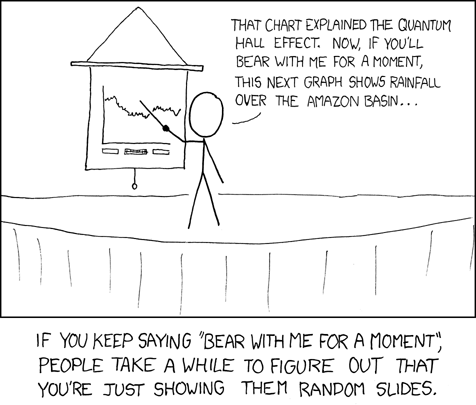
Have you ever used the CRAAP test?
If you are using a website for research--whether is it being used to get some background information, learn more about a topic, or being used in a paper (if your professor allows)--you want to find GOOD and RELIABLE websites. You want to evaluate them for credibility and appropriateness. There are a lot of websites out there that promote misinformation, are not fact-checked, or are just opinion pieces (to note a few examples of unreliable information). You might read and consider an opinion piece in your personal life, but for the most part it will not be used in the academic sciences.
Not sure how to evaluate websites to find good information? Follow the CRAAP test!
The CRAAP test asks you to evaluate sources based on three criteria:
The Feynman Lectures on Physics (California Institute of Technology): This website contains some of Feynman's lectures. Richard Feynman was a famous theoretical physicist.
Eric Weisstein's World of Physics (Wolfram Alpha sponsored): This website provides an encyclopedia of physics topics. The site is sponsored by Wolfram Alpha, a leading company in information related to science and technology.
Fractal Geometry (Yale University): This website provides a wealth of information about fractals and fractal geometry for someone new to the field.
Weighing the Earth in 1798:The Cavendish Experiment (Stanford University): This website provides an overview of the Cavendish experiment.
These are just a few websites to get you started. Use the tips in the boxes below to find websites for yourself.

Randall Monroe via xkcd.com (Creative Commons)
One way to find websites that are reliable (can be trusted to have true information) is to use Operators as well as other search tricks. These operators allow you to tailor your search to retrieve better results. The image below shows one of the most useful operators as well as another trick to help you search. Other common operators can be found HERE.
In the image, there is an operator site: You can use this operator to tailor your search to particular types of sites such as educational institutions (edu), organizations (org), or government institutions (gov). These are three most common types of sites you would find reliable information on.
The other thing to note below is that the phrase medical terminology is written with quotes around it. This tells Google that you only want results back that have the phrase medical terminology. Without those quotes Google may retrieve websites that have the words medical and terminology but not as a phrase. This allows you to find more relevant information. 